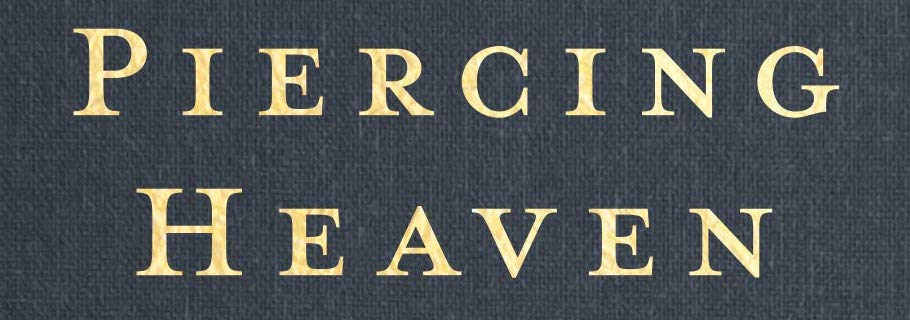I once met a prominent Christian—a Reformed Baptist theologian, even—who admitted something to me that sounded almost scandalous: He doesn’t care for The Pilgrim’s Progress. He read it as a student, he re-read it as an adult, and it just didn’t do much for him. And with that in view, here’s a confession of my own: I don’t really care for The Valley of Vision, that collection of Puritan prayers collected by Arthur Bennett. There are undoubtedly a few jewels in the collection, but most of the prayers just haven’t resonated with me. I set aside the book years ago and have only rarely returned to it.
It is probably for that reason that I approached Piercing Heaven: Prayers of the Puritans with a bit of skepticism. This collection was assembled by Robert Elmer and is similar in that it brings together edited prayers from various Puritan authors. But to my mind, these prayers are often far superior to the ones in The Valley of Vision. Why? I don’t think I can quite say, except that they are less poetic and, therefore, perhaps a little more “normal” or accessible. These are prayers that I can comfortably pray privately or publicly without them sounding too poetic or too dated.
So what does it mean to pray like a Puritan? This is the subject of the book’s introduction and Elmer answers by saying that their aim was “neither casual nor perfunctory prayer. The prayers of the Puritans shook lives to the core, pled with a sovereign God for mercy, and praised him in the brightest sunshine of grace.” They learned and practiced “the great open secret of prayer: the value of praying God’s words back to him. Over and over throughout their prayers, the Puritans make allusion to the Bible. It suffuses their devotion, keeping it from morphing into mysticism. It also makes them accessible to today’s Christians—because the Bible is something we surely share.” The purpose of his book is to recover some such prayers and to make them accessible to twenty-first century believers.
To do that he has drawn prayers from sermons and original languages and, when necessary, updated the language and illustrations. He has also at some points turned the words from third-person to second-person to use the form of personal address. Put together, he has assembled a great collection of extremely helpful prayers. They range in length from a few sentences to several paragraphs are divided into a number of categories: Asking God for help, suffering and sickness, resting in God’s love, preparation for the Lord’s Day and the Lord’s Supper, forgiveness, evangelism, beginning and ending the day, and so on. There must be a couple hundred all-told. Here are a few examples:
Piercing Heaven has quickly become a favorite book and one I keep near me for when I pray—and especially for when I don’t know what or how to pray. It’s a wonderful resource and one I highly recommend.










